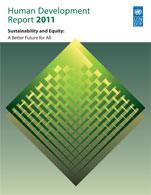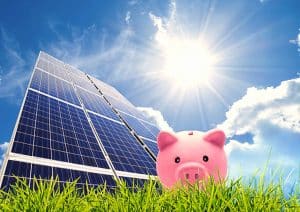This week saw the world’s population hit the seven billion mark and with it came increased anxiety over shortages of food and natural resources in developing nations. It’s fitting that in the same week the United Nations Development Programme has called on the international community in its 2011 Human Development Report to use renewable energy sources as a way to promote environmental sustainability and equity.
The world faces a looming energy crisis, with one in five people on the planet living without electricity, and one in three lacking access the energy most of us take for granted. The report points to positive trends in the average Human Development Index (HDI) – a measurement of income, health and education – as a potential climate death knell if the current energy void is filled by traditional high-pollution fuel sources like coal.
In sub-Saharan Africa – home to 750 million people living without power – HDI numbers are expected to rise by an estimated 44 percent by 2050, the biggest increase in any region in the world. A business-as-usual approach to expanding energy supply poses “grave environmental risks” to the steady progress of human development in Africa, where regional HDI growth could fall by 12 percent, and elsewhere.
This threat could be mitigated by expanding access to decentralised off-grid technologies such as wind energy and stand-alone solar power systems in isolated regions. Providing basic modernised energy services for all would only increase current carbon dioxide emissions by 0.8 percent, the report states. The estimated annual cost to achieve universal access to modern sources of energy is less than an eighth of annual subsidies for fossils fuels.
The 2011 Human Development Report will serve as a blueprint for action ahead of next year’s Earth Summit, the United Nations Conference on Regional Development, to be held in Rio de Janeiro in June 2012.
To truly achieve equity and sustainability on a global level, the document urges rich nations to help finance a transition to clean energy future. One strategy is imposition of an international currency tax, which could raise US$40 billion each year with a levy of just 0.005 percent on commercial foreign exchange trading. The money would go to increase funding for renewable energy development and climate change mitigation.
With global capital markets holding some $178 trillion in financial assets, the world can easily afford to invest in sustainability, the report says.
“Taking up this challenge will expand choices for people today and in the future – the hallmark of human development.”







































